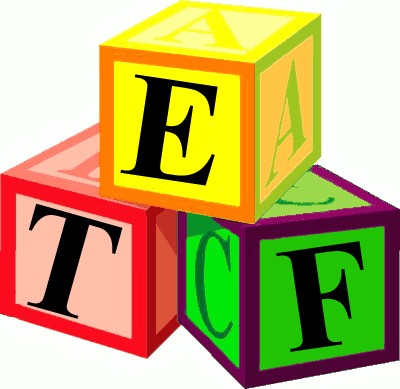ETFs (Exchange Traded Funds) Basic Introduction
Post on: 1 Июнь, 2015 No Comment

ETF (Exchange-Traded Fund)
Exchange-Traded Funds (or ETFs) are a type of closed-end mutual fund. Essentially, ETFs are mutual funds that trade on the stock market. As such, they offer features of a mutual fund in a stock-like instrument.
Just like mutual funds, ETFs represent a collection of underlying securities or stocks. Typically, ETFs try to replicate an index such as the S&P 500, Dow Jones Industrial Average (DJIA), Russell 2000, MSCI EAFE, and so on. Presently, nearly all ETFs are passively managed. That is, unlike many mutual funds, the firm managing the ETF does not actively add or remove stocks (unless the index being tracked changes). Popular ETFs have names such as spiders (after the ticker symbol SPY), qubes (QQQ), or diamonds (DIA). One of the most heavily traded ETFs in the United States are the qubes, which tracks the NASDAQ 100.
There are over a hundred ETFs traded on U.S. stock exchanges, with more in other countries. ETFs have been gaining popularity ever since they were introduced in the mid 1990s. ETFs are attractive to investors because they offer the diversification of mutual funds with the features of a stock. The popularity will only increase as new and more innovative ETFs are introduced.
ETFs vs. (Open-End) Mutual Funds
There are many advantages to ETFs, and these advantages will likely increase as ETFs are improved. Most ETFs have a lower MER (management expense ratio) than comparable mutual funds. Mutual funds generally charge 1% to 3% while ETFs are almost always in the 0.2% to 1% range. Over the long term, these cost differences can compound into a noticeable difference.
ETFs are also more tax-efficient than mutual funds. Mutual funds can trigger capital gains when large number of holders redeem their shares. In contrast, ETFs are not redeemed by holders (instead, holders simply sell their ETF on the stock market, as you would a stock).

Perhaps the most important, although subtle, benefit of an ETF is the stock-like features offered. Since ETFs trade on the market, you can carry out trades similar to a stock. For instance, you can short, use a stop-loss order, buy on margin, and invest as much money as you want (there is no minimum investment requirement). Mutual funds do not offer those features. For example, you cannot place a stop loss order on a mutual fund.
ETFs also have some disadvantages when compared with (open-end) mutual funds. One such disadvantage stems from the fact that many mutual funds are actively managed. Mutual fund managers can seek out undervalued and profitable firms whereas ETFs typically just track an index. (Some studies have shown that 70% mutual fund managers do not beat a passive index. However, professional mutual fund managers may be better for small-cap, foreign, and similar areas).
Please contact us for advertisement information and other matters.














